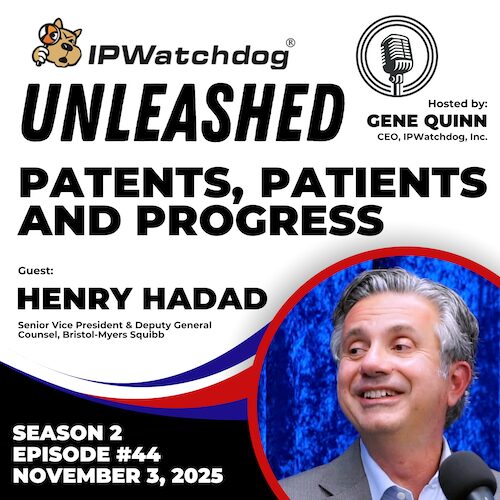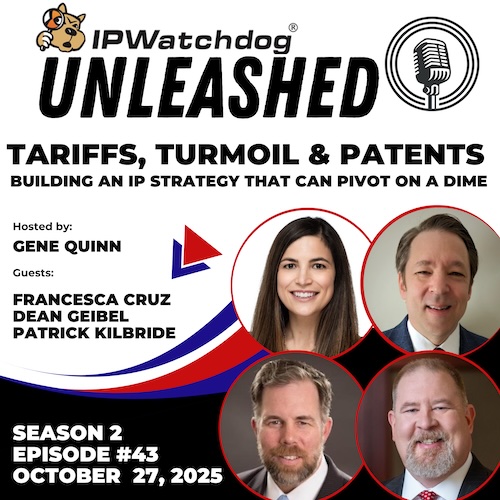All Posts
The Federal Circuit issued its long-awaited decision in Google LLC v. Sonos, Inc. on August 28, 2025, providing guidance on the doctrine of prosecution laches. As the first U.S. Court of Appeals for the Federal Circuit decision on prosecution laches for a patent issued after 1995—when patent terms changed from 17-years-from issuance to 20-years-from filing—some suspected the Federal Circuit might definitively end the prosecution laches doctrine. Although prosecution laches remains a valid equitable defense, the Federal Circuit placed significant limitations on its applicability.
In less than 2.5 years, the Unified Patent Court (UPC) has established itself as a hallmark for high-profile patent litigation. This venue is a reality that U.S. companies need to be aware of Why? U.S. companies are “at both sides of the v” before the UPC. Below are the 10 most important questions that define liability risks before the UPC, both from a defendant’s and a plaintiff’s perspective. These questions will be put into perspective and compared to U.S. district court and International Trade Commission (ITC) litigation.
This week in Other Barks & Bites: the Federal Circuit finds that Motorola failed to demonstrate a protectable property interest in its challenge to the USPTO’s rescission of former Director Vidal’s “compelling merits” memo; Samsung gets hit with a $191.4 million jury verdict over OLED display technologies;the Council for Innovation Promotion asks the U.S. Trade Representative to address specific shortcomings in IP protections among America’s trading partners during joint review of the U.S.-Mexico-Canada Agreement; and more.
The U.S. Court of Appeals for the Federal Circuit (CAFC) has denied three mandamus petitions asking the court to step in and curb the recently-implemented practice by which the U.S. Patent and Trademark Office (USPTO) Director decides whether to institute inter partes review (IPR) proceedings. In the one precedential ruling in In Re Motorola Solutions, Inc., the CAFC—in an opinion authored by Judge Linn—rejected Motorola’s arguments that then-Acting USPTO Director Coke Morgan Stewart violated the Administrative Procedure Act (APA) and the Due Process clause of the Fifth Amendment to the Constitution by deinstituting eight IPR petitions it filed against claims of Stellar LLC’s patents.
The U.S. Patent and Trademark Office (USPTO) announced today that it is extending the comment period for a proposed rule published on October 17 by 15 days in response to requests from stakeholders. The Notice of Proposed Rulemaking (NPRM) titled “Revision to Rules of Practice before the Patent Trial and Appeal Board” has as its stated goal “to focus inter partes review proceedings on patent claims that have not previously been challenged in litigation or where prior litigation was resolved at an early stage.” A press release issued on the NPRM said that, under current practice, “the Office is concerned that even extremely strong patents become unreliable when subject to serial or parallel challenges.”
For many guitarists, finding the right tone is a lifelong pursuit. It’s the quest for the perfect sound—a sound controlled not only by the guitar or the amplifier but also by the complex chain of electronics connecting them. Central to this are the effects pedals, and few pedals have the same mythical status as the Klon Centaur. This legendary pedal, built by guitarist and designer Bill Finnegan in the 1990s, was the subject of a recent trademark lawsuit that drew a line between a respectful “klone” (often spelled with a “K”) and an infringing counterfeit.
Continuing his pro-patent owner tack so far, U.S. Patent and Trademark Office (USPTO) Director John Squires on Wednesday designated as “informative” a Director Review decision in which he relied on the recently-designated precedential decision in Revvo Technologies, Inc. v. Cerebrum Sensor Technologies, Inc. to vacate and deny institution of an inter partes review filed by Tesla, Inc.
The U.S. Patent and Trademark Office’s (USPTO) latest USPTO Hour focused on patent eligibility updates today, one day after Director John Squires on Tuesday designated as precedential a September 26, 2025, decision that champions eligibility for artificial intelligence (AI) inventions. The Appeals Review Panel (ARP) decision in Ex parte Desjardins, Appeal 2024-000567 (Decided September 26, 2025) was mentioned in Squires’ recent remarks at the American Intellectual Property Law Association (AIPLA), where he told attendees that there is no need to overhaul patent law to protect AI, as proper application of existing laws is sufficient to secure patent rights for technologies of the future.
On the current episode of Understanding IP Matters (UIPM), Ruth Vitale, Hollywood producer, founder and co-president of Paramount Classics, and president of Fine Line Features, discusses her efforts to effect U.S. legislation that would allow for site blocking, thereby strengthening the entertainment industry and protecting U.S. consumers. As the entertainment industry is a top cultural exporter in the United States, this added protection and greater retained revenue would ensure this status continues and grows.
Today, Mrs Justice Joanna Smith DBE of the United Kingdom’s High Court of Justice issued a highly awaited ruling in Getty Images (US) Inc. v. Stability AI Ltd., a case which was expected to have major implications in determining liability for generative artificial intelligence (AI) developers under UK intellectual property law. The 205-page decision, which mainly focuses on Getty’s trademark claim while also clarifying important aspects of secondary copyright liability in the AI context, failed to address certain fundamental questions in large part because Getty failed to raise sufficient evidence to proceed with its claim of primary copyright infringement at trial.
U.S. Patent and Trademark Office (USPTO) Director John Squires issued a Director Review decision on Monday, which he designated as precedential, vacating a decision granting institution of an inter partes review (IPR) because the Board erred in accepting the petitioner’s inconsistent claim constructions without explanation. In Revvo Technologies, Inc. v. Cerebrum Sensor Technologies, Inc., the PTAB instituted the IPR on September 15, 2025, and Director Review was initiated sua sponte in order to address the claim construction issues.
This week on IPWatchdog Unleashed we tackle the impact of tariffs and geopolitical uncertainty on intellectual property (IP) strategy, budgets and patent portfolios. In today’s fast-paced global economy, intellectual property (IP) teams face unprecedented challenges and opportunities. The world is witnessing a flux of geopolitical tensions, economic uncertainties, and rapid technological advancements, all of which demand agility and strategic foresight from IP professionals. Meanwhile, to complicate matters the United States is attempting to rearrange international business norms by diversifying supply chains for particularly important goods and components, while simultaneously aggressively using tariffs to change global economic behavior and settle international conflicts and wars. There is no doubt that this is a tumultuous time for all businesses, which demands attention, forethought and deliberate strategic action.
Carpenter Technology is seeking a highly motivated Assistant Counsel – Patent Attorney with 3–5 years of patent or intellectual property management experience and a strong interest in corporate and commercial law matters. This hybrid in-house role offers a unique opportunity to contribute to both patent and corporate legal initiatives in a dynamic, innovative-driven environment.
On Friday, October 31, Professors Shlomit Yanisky-Ravid, Lawrence Lessig and a number of other professors and researchers filed an amicus brief with the U.S. Supreme Court in support of Dr. Stephen Thaler’s petition for a writ of certiorari in Thaler v. Perlmutter, which is urging the Court to grant certiorari and recognize copyright protection for works generated by artificial intelligence (AI). The brief argued that “excluding AI-generated works from copyright protection threatens the foundations of American creativity, innovation, and economic growth,” warning that the lower court’s interpretation, which requires human authorship, disregards the “spirit of the Copyright Act.”
The U.S. Chamber of Commerce’s Global Innovation Policy Center (GIPC) is calling on President Donald Trump to reconsider his Executive Order on Most Favored Nation (MFN) pricing for U.S. medicines, which the GIPC said “would jeopardize the innovation that has made the United States a global leader in life sciences.” In the Chamber’s latest blog post, the GIPC’s Senior Vice President, Global Innovation Policy Brad Watts and Chamber Vice President of Health Policy, Lexi Branson—while acknowledging the goal of reducing drug prices as a “worthy one”—outlined the risks of MFN pricing and called on the Administration to instead “focus on market-based solutions that lower costs while preserving the incentives that drive medical breakthroughs.”

Latest Podcasts

IPWatchdog Events
Webinar: Patent Pruning Reimagined – Data-Driven Insights for Smarter IP Decisions
November 11 @ 12:00 pm - 1:00 pm ESTWebinar: Using AI for Chemical & Biotech Patent Work – Separating Fact from Fiction
November 18 @ 12:00 pm - 1:00 pm ESTWebinar: IP Specific vs. General Purpose AI – Choosing the Right Tool for the Task
November 20 @ 12:00 pm - 1:00 pm ESTWebinar: AI Prompting for Patent Prep & Pros – The Latest Techniques Every Patent Practitioner Needs to Know
November 25 @ 12:00 pm - 1:00 pm EST

![[IPWatchdog Logo]](https://ipwatchdog.com/wp-content/themes/IPWatchdog%20-%202023/assets/images/temp/logo-small@2x.png)
![[Advertisement]](https://ipwatchdog.com/wp-content/uploads/2025/10/DeepIP-Nov-18-2025-sidebar-700x500-1.jpg)




